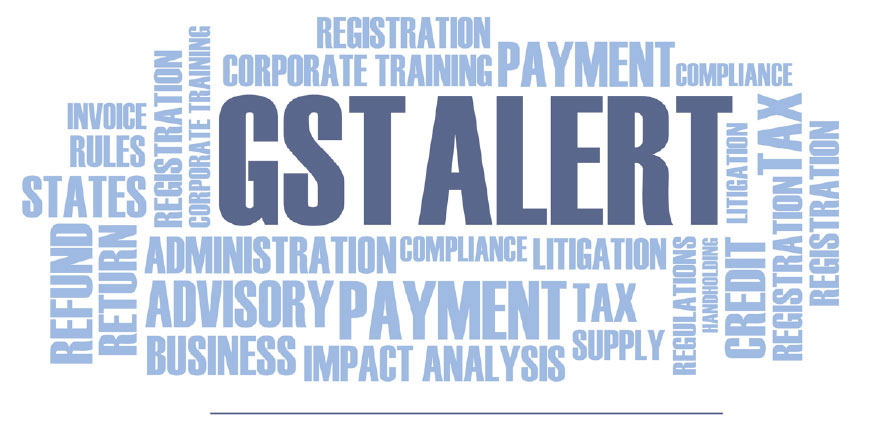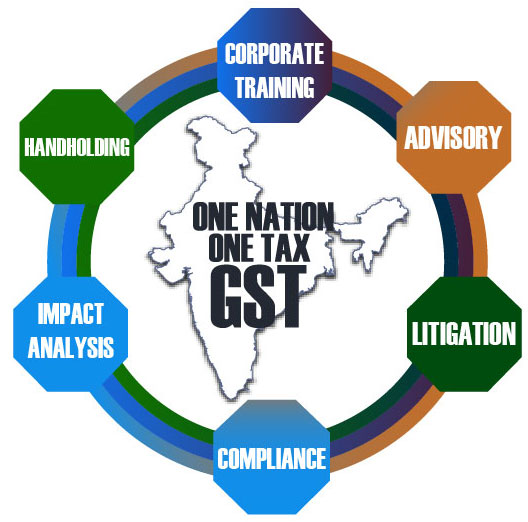Dated 6th April, 2020

Allowing clubbing of refund application and also imposing certain restrictions on gst refunds
BACKGROUND
In order to give effect to the Notification No. 16/2020-Central Tax dated 23.03.2020, the Government has recently come up with circular no. 135/05/2020 – GST dated 31.03.2020. Such amendments made vide Notification and now circular have been more or less enacted to keep control on fake invoicing which are in turn converted into IGST refund route and taken out from the revenue exchequer. In some way the circular also provides a window for clubbing of application for various financial years so that optimum refunds can be obtained. Let us take a look as to the pros and cons of the aforesaid circular as stated herein below:Clubbing of Refund applications across different financial years:
The circulars issued in relation to GST refunds always contained a restriction with respect to clubbing of refund applications across different financial years and the same was also ascertained by master circular on refund1
However, in view of a recent judgment of the Hon'ble Delhi High Court2 it was observed that circular might mitigate rigours of law by granting administrative relief beyond relevant provisions of the statute. However, Central Government is not empowered to withdraw benefits or impose stricter conditions than postulated by law. Moreover, there is no restriction in the provisions of both CGST Act and IGST Act, 20172 for allowing clubbing of refunds of different financial years. Hence, now clubbing of refund applications across different financial years will be allowed and the tax payer can club refund Applications for various financial years.
Subsequent reduction in rate of tax for inputs will restrict Refund of ITC accumulated due to inverted duty structure:
It has been clarified that in case there has been a reduction in the rate of tax on inputs which results in the same rate of tax for input and output supplies, then under such a situation refund under the category ITC accumulated due to inverted tax structure would not be admissible. The same may be understood with the help of an example. Suppose the input goods say X is attracting 18% of tax and subsequently the rate is reduced to 12% then the same will not be admissible for Refund under the category ITC accumulated for turnover under inverted duty structure if the Output Tax is same as the input tax.
Procedure for Disbursement of Refund amount
It has been clarified that the refund of tax wrongly paid/paid in excess by debiting the electronic credit ledger will be disbursed by re-crediting the amount in the same ledger by issuing Form GST PMT-03 due to the contention of the Government that this situation may lead to unintended encashment of credit balances4.
Also, in case of refund application other than refund of tax paid on zero-rated supplies, the admissible refund amount will be disbursed in the same proportion in which the electronic cash & credit ledger has been debited for paying the total tax liability for the period for which refund application has been filed. So, for cash disbursement Form GST RFD-06 will be issued and for re-crediting in the credit ledger Form GST PMT-03 will be issued5.
Only invoices appearing in GSTR-2A, admissible for Refund of Input tax Credit
Till date for the purpose of refund application, (also provided in master circular6) eligible invoices not appearing in GSTR-2A were to be uploaded online after self-certification. However, now it has been clarified that the refund of accumulated input tax credit shall be limited to the eligible ITC in respect of those invoices that are uploaded by the supplier in Form GSTR-1 and reflecting in Form GSTR-2A. Hence, eligible ITC in relation to invoices not reflecting in Form GSTR-2A cannot be considered for refund purpose. Now the question that arises is what about the invoices that would be reflected on a later date in Form GSTR-2A. Will such invoices be never admissible for the purpose of Refund? For such invoices it is suggested that the Government should keep a window for application of refund application for such invoices which had not been previously reflected in Form GSTR-2A.
Insertion of HSN/ SAC code in statement of inward invoices for Refund purpose
A new column has been added to provide the HSN/SAC code in the format for Statement of Invoices (Annexure-B of Master Circular)in relation to inward supplies in respect of which refund has been claimed.
CONCLUSION
On the above backdrop, the above circular provides more opportunities to tax payer to claim for legitimate refunds by clubbing of refund applications for various financial years. Moreover, various clarifications have been issued for situations relating to refund matter viz. clarification in relation to mode of payment of admissible refund amount, admissibility of invoices for refund purpose, etc with a view to countering the admissibility of Refunds on fake invoices.
1Para 8 of Circular No. 125/44/2019-GST dated 18.11.2019.
1In the case of M/s Pitambara Books (P) Ltd.
1Section 16(3) of IGST Act, 2017 & Section 54(3) of CGST Act, 2017
1Rule 86(4A) of the CGST Rules,2017 added by Not. No. 16/2020-Central Tax dated 23.03.2020
1Rule 92(1A) of the CGST Rules,2017 added by Not. No. 16/2020-Central Tax dated 23.03.2020
1Para 36 of Circular No. 125/44/2019-GST dated 18.11.2019

BT Associates is a premier indirect tax consultant in kolkata, delivering high quality services to client in the area of indirect taxation.GST idea is a unit of BT Associates formed to share knowledge on stakeholders. We cover entire gamut from technical papers to recent development including IT under GST


-
Founder Member
- Bhaskar Thakkar
- Chief Executive officer
- BT Associates, India
- thakkar@btassociate.com
BT Associates is a premier indirect tax consultant in kolkata, delivering high quality services to client in the area of indirect taxation.GST idea is a unit of BT Associates formed to share knowledge on stakeholders. We cover entire gamut from technical papers to recent development including IT under GST






